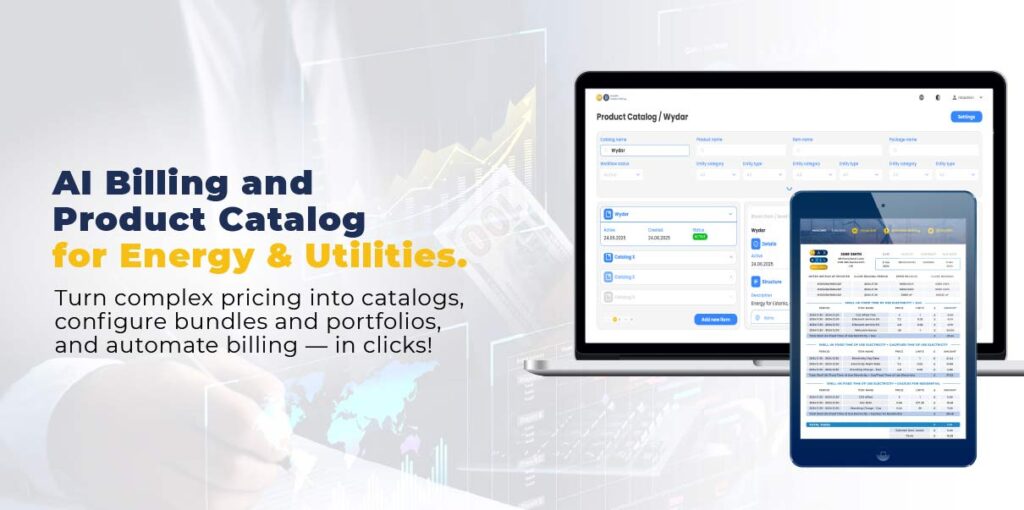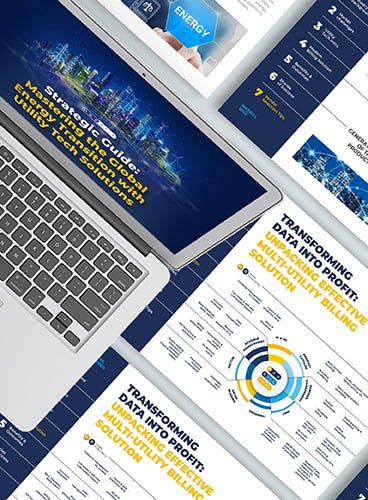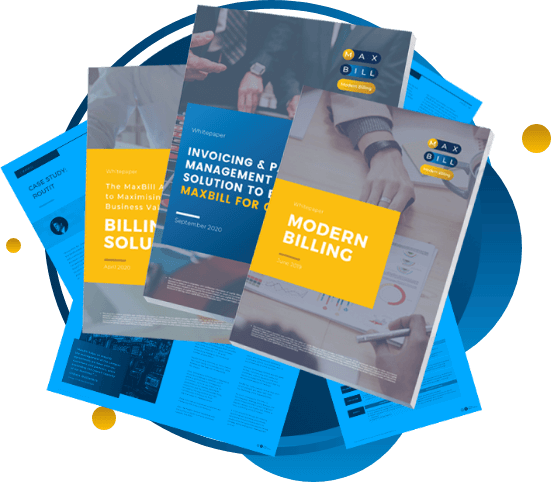You’re a brand-new independent electricity supplier (greenfield) aiming to start supply shortly with 50 pilot consumers and scale to several thousand in a year.
What you need first isn’t a giant IT program but rather cloud SaaS CIS and billing. The solution should primarily deliver onboarding, invoicing, and payment collection, while CRM and ERP are on the roadmap as well.
Or you’re a larger group entering a new country as a greenfield. You need country presets (tariffs, taxes, invoice formats), fast supplier switching, and seamless integrations to datahubs, DSOs, CRM, payments, and meter infrastructure. Again, you don’t plan to increase IT headcount.
Day one goals look similar for both: onboarding, switching, first bills out, cash in, and compliance.
In this piece, we’ll dwell on how both types of companies can launch core business activities in 4 weeks without “big-bang” SI projects.
Without further ado, let’s get started.
Key Takeaways
- The 4-week plan primarily needs country market presets, integrations to CRM, PSPs, meters, and SLA-backed billing.
- At MaxBill, we narrowed down to the key 6 elements that create cash and compliance from day one.
- New energy retailers need compliance as such: when the rulebook changes, updates ship as configuration, not projects.
- MaxBill AI billing and product catalog is the tool to achieve tariff agility.
- Hyperautomation in ops and collections is a way out for lean teams of fresh energy retailers.
- One of the MaxBill KPIs for a quick launch is a low DSO.
- After the launch, when the pay-as-you-grow architecture is in place, you can extend without re-platforming.

What a 4-week launch includes
Go-live is not a sandbox demo. It’s first bills issued and cash posted with your CIS live (unique customer IDs, pricing, tax rules, invoice templates), area-compliant switching/onboarding in place, and the minimum integrations active (payments, meter data, notifications).
At MaxBill, we define three guardrails at this point:
- Market presets for your country (invoicing, taxes/levies, regulatory files, numbering rules) shipped as configuration, not projects.
- Productized adapters to payments, meter data servers, DSOs, and comms, so you configure rather than build.
- SLA-backed billing with automated validations and reproducible runs.
Pilot phase scope: the smallest set that works
To meet launch deadlines and achieve “first invoice out, first cash in,” it’s essential to scope the pilot to what creates cash and compliance from day one, without delaying for nice-to-have features.
The scope includes the following 6 components:
- CIS + invoicing: master data, unique IDs, contract objects, invoice layouts, tax/levy rules, audit trails.
- Payments: any method of acceptance; real-time payment posting into receivables.
- Collections: payment monitoring, delinquency tracking, and basic dunning tiers preconfigured.
- Notifications: invoice-ready, overdue, and reminder templates via email/SMS with retry rules.
- Meter data: daily updates via REST API from your meters; validation for gaps and anomalies.
- Regulatory workflows: area-compliant onboarding and contract templates from day one.
Compliance by design from day one
Area-specific regulations require exact data elements, process checkpoints, and artifacts. MaxBill country packs cover switching and onboarding flows with required IDs/statuses, SLA checkpoints, and automated validations to reduce rejections. You also get aligned contract templates with e-signature support and effective-date control.
The packs include an evidence bundle for reproducible billing runs, report exports, audit logs, and data retention. When the rulebook changes, updates ship as configuration, not projects, so you stay compliant without derailing operations.
Integration map you can configure, not build
MaxBill delivers prebuilt integration components that you enable in hours, not months:
- Payment gateways/banks: plug in your PSP(s) for card/SEPA; we auto-post settlements and expose failed-payment events to dunning.
- Meter data server: connect your own infrastructure and DSO data feeds for reads/exceptions via standard endpoints.
- DSOs in scope: we map file/message formats, schedules, and acknowledgments into the same validation pipeline as your own reads.
- Messaging/notifications: email/SMS gateways with templates, throttling, and delivery analytics.
- ERP/accounting (future): define the chart of accounts and export cadence now; switch on the adapter post-pilot.
These components also include retries/backoff, idempotency, monitoring, and immutable logs. This way, your team manages configuration, not custom code.
Related:
How can Polish energy suppliers integrate seamlessly with CSIRE and create more value for consumers?
AI Billing & Product Catalog: tariff agility
Tariffs will often change. MaxBill’s AI product catalog treats pricing like code, but without spreadsheets. Agility here protects margin and reduces corrections that inflate DSO and support costs.
Nowadays, MaxBill AI product catalog allows setting up tariffs in hours, such as fixed, indexed, and time-of-use (ToU) tariffs. Electricity retailers can then go with EV add-ons and bundles when ready.
Before even publishing, they can run what-if checks for margin and tax effects and even get finance sign-off. Where permitted, pro-rations/back-billing and reconciliations are rule-driven and traced.

Hyperautomation in billing & collections: how ops stay tiny
MaxBill’s run-time does the heavy lifting so a small team can operate at scale. To achieve this, the following processes are leveraged:
- Validation rules catch bad data before rating; exceptions route to work queues with root-cause hints.
- Deterministic reruns and partial re-ratings mean you fix only what changed and preserve auditability.
- Auto-dunning with tiers, grace periods, and promise-to-pay; instalments and deposits reduce write-offs.
- Ops visibility via dashboards and alerts: you see blockers before they touch cash or customers.
Cash conversion and the DSO blueprint
Low DSO is a design choice, not a coincidence. New electricity suppliers traditionally define the KPI focus for the first quarter as a low DSO trend, cash-collection rate, failed-payment rate, first-pass yield, and dispute cycle time.
MaxBill bakes in the controls and makes sure frictionless pay is there with instant posting and delinquency automation. When disputes occur, the system tracks reasons, pauses dunning where appropriate, and ties resolutions to re-rating where allowed.
Onboarding & supplier switching: no first-bill shocks
The fastest way to lose trust is a wrong first bill. MaxBill aims to lower early churn and potential disputes and, of course, keep cost-to-serve.
To prevent wrong billing, the following processes are enabled:
- Digital onboarding with KYC hooks ensures you capture what regulators and your DSOs require exactly once.
- Meter linkage and validation stop orphaned accounts or mismatched supply points.
- Rehearsed switching paths for the pilot cohort; known rollbacks and comms templates for edge cases.
- First-bill quality gates run before issuance; anything that fails routes to review, not the customer.
Scale path after the pilot: weeks 5–12
Now, when the architecture pay-as-you-grow (per active customer) is in place and costs trace revenue, you can extend without re-platforming. You can proceed with adding MaxBill CRM and self-care portal, or an AI-powered one for a greater user experience.
You’re also ready to add ERP/accounting integration for journals and reconciliation and expand DSOs or regions. The novel CRM will allows to onboard households and SMEs and introduce EV offers and bundles.
For expanding groups, you can use the first country pack as MVP and then expand, still running ops under one comprehensive billing and CIS systems.
Discover MaxBill CRM for energy retailers
Risks and mitigations of the 4-week plan
Based on our experience, limitations may occur during the launch period. By treating them as design constraints, not surprises, both electricity suppliers and tech vendors can keep the schedule intact.
For example, potential pitfalls are:
- If licensing or required IDs aren’t ready, you can pre-check all registry prerequisites and, where the regulator allows it, use temporary numbering to keep the schedule.
- If DSO data arrives late, you can run it through queues with automatic retries and alerts and have a documented manual-read fallback.
- If the payment gateway onboarding slips, the solution might be keeping a dual-PSP option ready and enabling an offline payment acceptance flow.
- If contract terms are unclear, electricity suppliers can lock the legal templates by the end of Week 1 and enforce change control for any edits after that.
Success metrics and evidence: what “good” looks like

Bottom line
With market presets, productized adapters, and SLA-backed AI Billing, MaxBill lets new or expanding electricity suppliers reach their first cash in four weeks, keep DSO low, and scale into more products and countries without a large SI or a large team.
Related:
How can energy suppliers increase the chances of a successful new market entry?

































